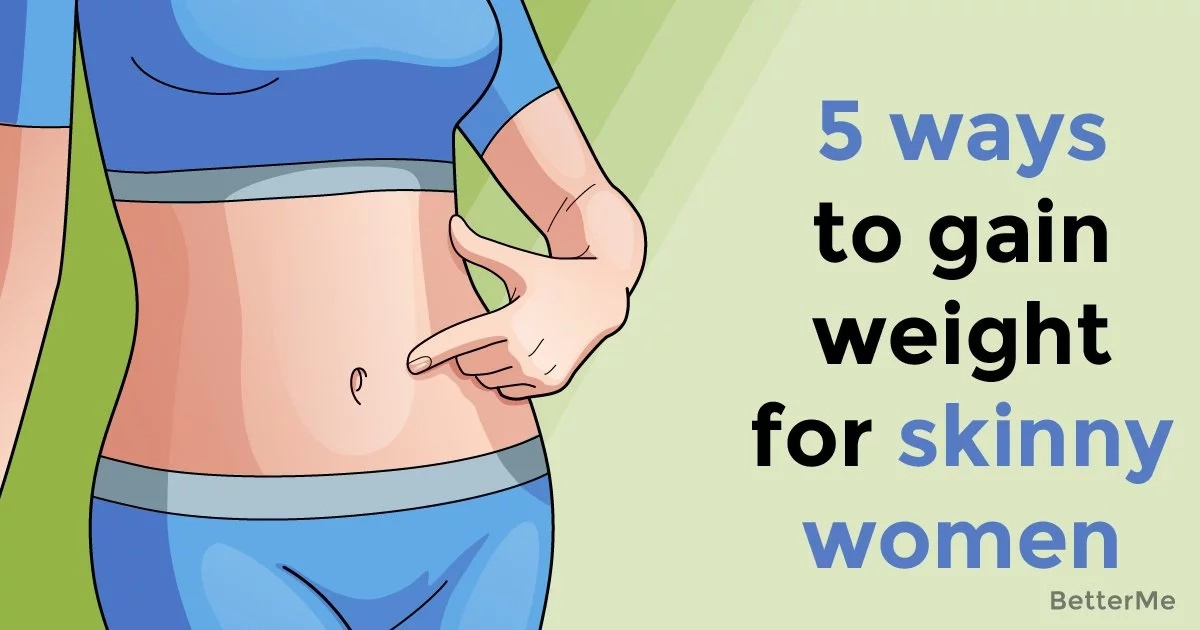

"Keeping a food journal may help, but I’d be guarded about attempting to ‘police’ or ‘judge’ someone who is already apprehensive," Massey says. One of those tips is to not judge yourself. Many people struggling to put on weight find tips and tricks that help them on their journey. High-protein foods that are good for developing muscle mass and gaining weight include meats, dairy, fish, eggs, nuts, legumes and protein supplements like whey protein. "Putting too much emphasis on protein foods can have the unintended consequence of inhibiting appetite." Eating some frivolous foods can help meet calorie needs for those who are struggling to eat enough volume," Massey says. "Protein is especially crucial, but it’s still important to include variety. Variety is always important, so including foods from each food group not only keeps your taste buds happy but also helps your body capture all the nutrients that are necessary to build and repair tissue. Guacamole can be another delightful way to slip calories in. "A handful of nuts contributes 160-190 high-nutrient calories. "It’s okay to be liberal with the salad dressing when you’re striving to increase calories without increasing volume," Massey says. For instance, a tablespoon of olive oil is 120 calories. Another sneaky trick is to capitalize on healthy oils. For example, potatoes have more calories than broccoli, but both are in the vegetable group. To add pounds, it’s also helpful to specifically include foods within a food group that provides more calories per serving. You should strive to include foods from each food group in your daily diet. "Most people will find it easier to gain weight if they add calorie-dense snacks to their routine." "Understandably, it seems like it should work, but attempting to eat huge portions at one time often backfires," says Massey. One mistake people make when trying to put on weight is overeating. "Being significantly underweight can undermine bone health, reproductive health and impair immune function." How not to gain weight "Having low muscle mass can lead to loss of independence if body weight drops so low that it becomes difficult to engage in activities of daily living," says Karen Massey, who is a registered licensed dietitian and community education coordinator at INTEGRIS Health. Gaining weight in a healthy manner is even more important to ensure overall health and muscle development. Like losing weight though, gaining weight can be a struggle for many people. Severely obese patients - those with a BMI of 35 or more - faced a 1.3 times greater risk. By contrast, obese patients (those with a BMI between 30 and 34.9) face a 1.2 greater risk for dying than normal-size patients. By looking at the results of 51 studies overall, the authors found that low-BMI people were 1.8 times more likely to die than those with a normal BMI. Underweight adults actually have a higher risk of death than those who are overweight, according to a meta-analysis published in the Journal of Epidemiology and Community Health in 2014. Several medical conditions can lead to a person being underweight, and being underweight can have health risks, including death. Being underweight is defined as having a body mass index (BMI) below 18.5, which is generally less than the body mass needed to sustain optimal health. Your physician may recommend gaining weight if you are consistently underweight. Maybe they just want to bulk up for bodybuilding or athletic performance.īut it’s not just athletes or bodybuilders who can benefit from gaining weight. While it seems most people are trying to lose weight, there are those who want to gain weight for a variety of reasons.


 0 kommentar(er)
0 kommentar(er)
